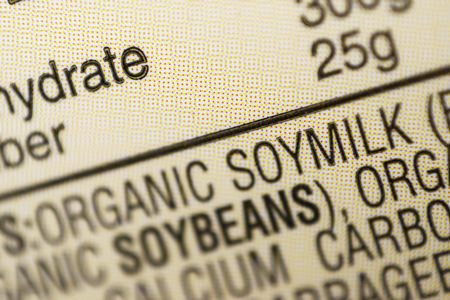
Washington (AP) – U.S. regulators want to remove a health claim about the heart benefits of soy from cartons of soy milk, tofu and other foods, saying the latest scientific evidence no longer shows a clear connection.
 The announcement by the Food and Drug Administration marks the first time the agency has moved to revoke a health food claim since it began approving such statements in 1990. The claim that soy protein can reduce heart disease appears on about 200 to 300 products in the U.S., according to industry figures, including popular brands like Silk soy milk.
The announcement by the Food and Drug Administration marks the first time the agency has moved to revoke a health food claim since it began approving such statements in 1990. The claim that soy protein can reduce heart disease appears on about 200 to 300 products in the U.S., according to industry figures, including popular brands like Silk soy milk.
Calls to WhiteWave Foods Company, which markets Silk brand soy products, were not immediately returned.
The FDA first approved the language about the benefits in 1999 based on studies suggesting soy protein lowered a type of heart-damaging cholesterol in the bloodstream. But some later studies have failed to show a clear link.
One 2005 study by the U.S. government’s Agency for Healthcare Research and Quality found that soy products had little effect on bad cholesterol. The FDA began reevaluating the food claim in 2007 and said, “The totality of the evidence is inconsistent and not conclusive.”
The agency will take comments on its proposal for 75 days before moving ahead. If the language is removed, companies may still be able to use a less definitive statement about soy’s benefits by including a disclaimer or description of the mixed evidence.
Consumer advocates backed the proposal, arguing that earlier research misinterpreted soy’s effect on cholesterol.
Bonnie Liebman, a nutrition scientist at the Center for Science in the Public Interest, explained that a person might benefit by replacing red meat with soy, but the benefit would be from the reduction in red meat, not because of anything special in the soy protein.
The FDA estimates it will cost companies between $370,000 and $860,000 in upfront costs to re-label their products, according to a federal filing posted online.
An industry group for soy manufacturers disputed the FDA’s decision and pointed to 12 other countries, including Canada, that have approved health labeling claims making the link between soy protein and heart benefits. The group, Soyfoods Association of North America, said it would make its case to the FDA during the comment period.





